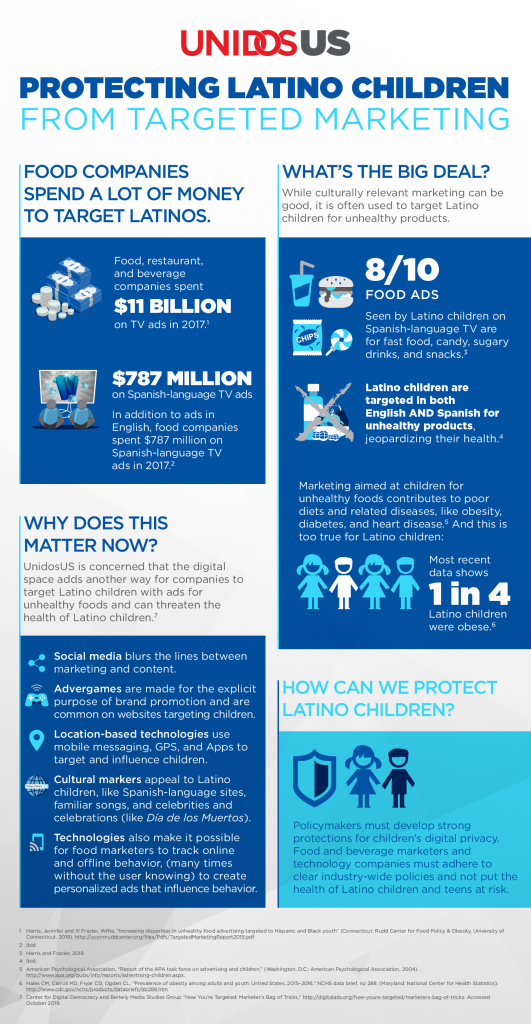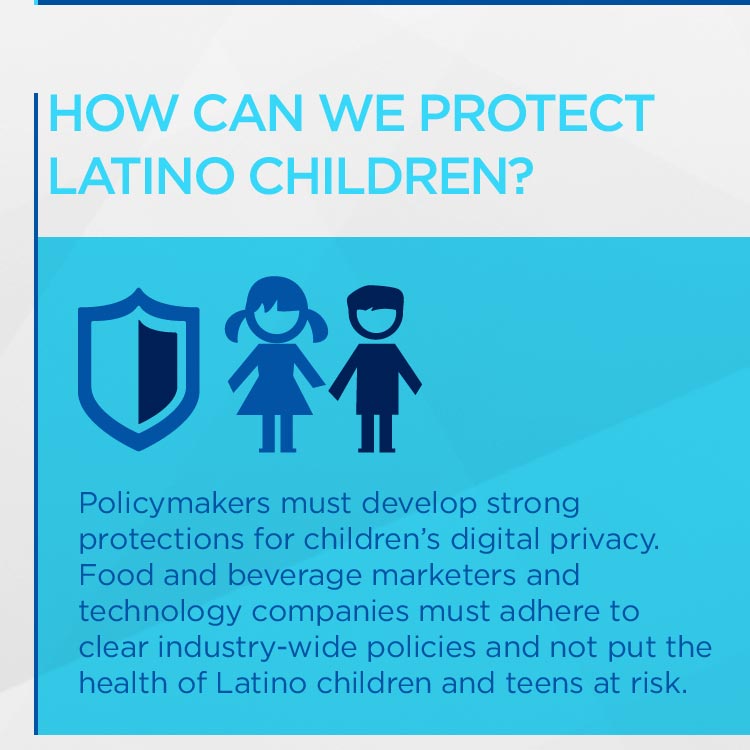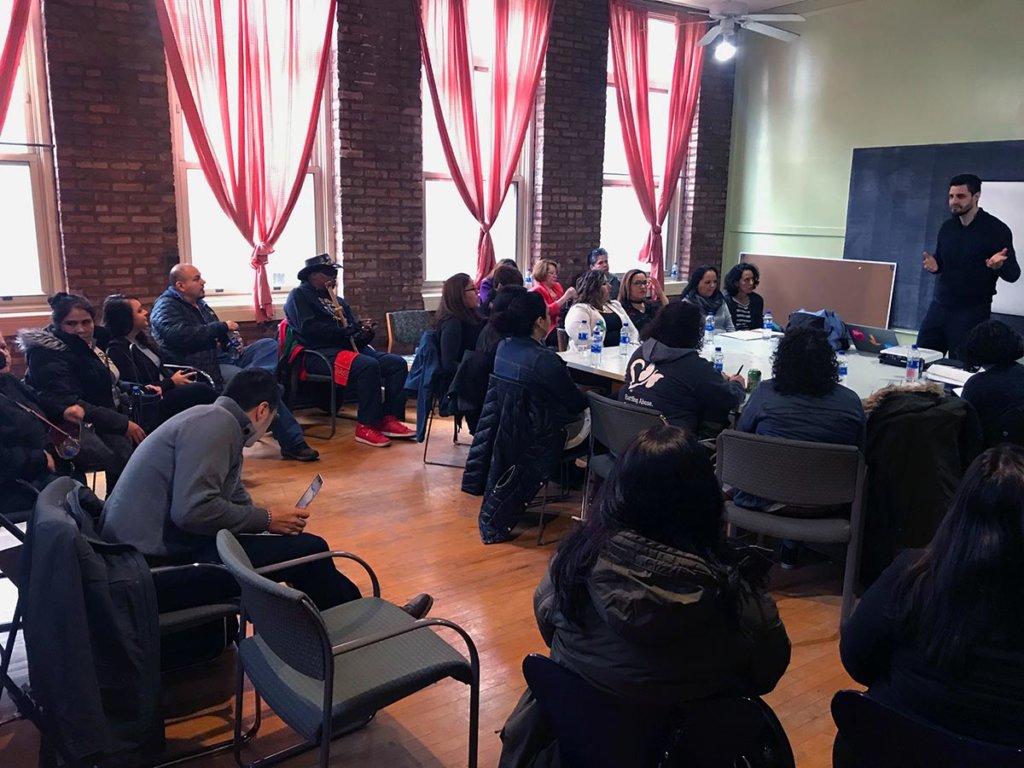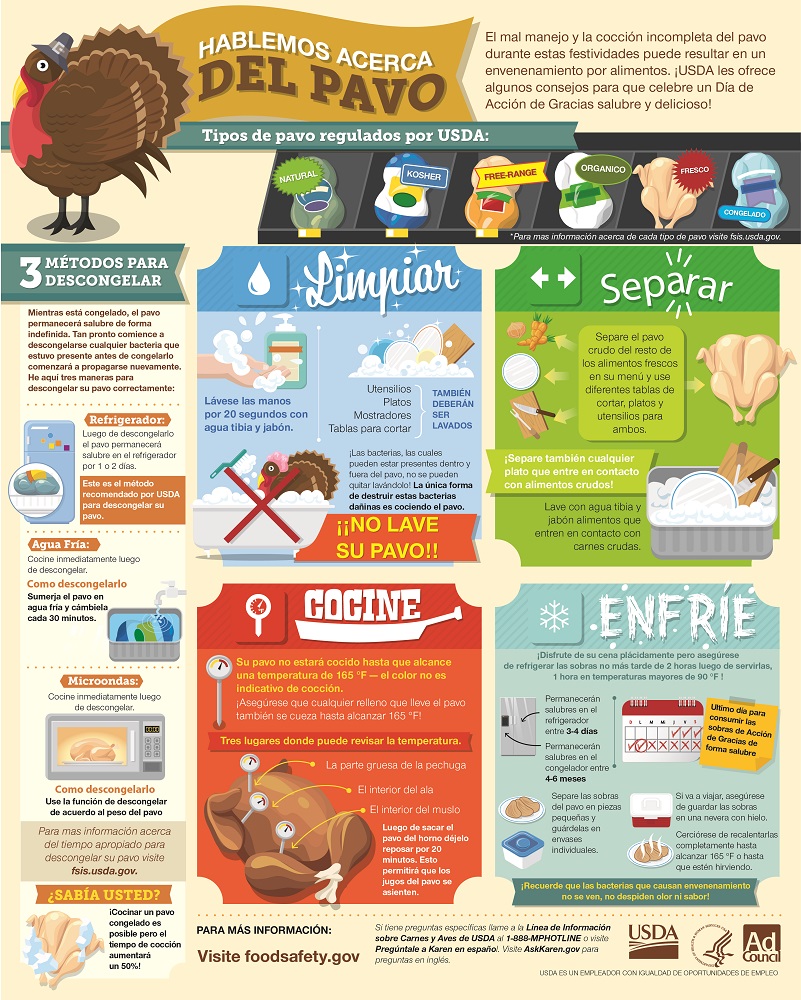Digital targeted marketing and Latino children: A surprising health threat
We know that even in the best of times, making healthy decisions can be tough and the COVID-19 pandemic and related economic crises hitting our country isn’t going to make that any easier. Those healthy decisions will likely be a bit tougher as schools nationwide are closed to help stop the coronavirus. That’s because millions of children are flocking to digital platforms, exposing them to an environment where their rights and health are at risk.
The environment a child lives in—their home or their city—plays a big role in their health and a child’s environment now includes the digital space. Between 2013 and 2017, the amount of time spent on mobile devices by Latino kids quadrupled (from 12 minutes a day in 2013 to 56 minutes a day in 2017). Of course, online activity has been tied to the increase of obesity—if kids are sitting at a computer they aren’t outside running and playing.
But there is surprising way that your child’s online activity can harm their health: when food and beverage companies aggressively target them with advertisements for junk food. Here’s what you should know about “digital targeted marketing” and what you can do help protect your child.
Keep up with the latest from UnidosUS
Sign up for the weekly UnidosUS Action Network newsletter delivered every Thursday.

WHAT IS DIGITAL TARGETED MARKETING AND WHY DOES THIS MATTER NOW?
While many sites and platforms provide an educational lifeline and respect children’s digital rights, marketers rely on “Big Data” and digital techniques to blur the lines between content and advertisements and reach children and teens through websites, social platforms, and mobile devices, making it tough for even the most involved parent to protect their kids from these practices.
UnidosUS believes that the practice of targeted marketing is a major racial and health equity issue because companies specifically target children and youth of color with marketing for foods and drinks that are low in nutrition and high in sugars, salt, and fats. Doing this reinforces health inequities where Latino children are more likely suffer from obesity or are more likely to develop diabetes and/or heart disease as adults. This practice is especially harmful to the nation’s Latino children. They get a “double dose” of targeted marketing in both English and Spanish, increasing the number of ads designed to negatively influence their nutrition choices that they see.
WHAT CAN BE DONE?
Protecting kids from the harms of digital targeted marketing will take a lot of work from different players.
- Advocates and researchers: UnidosUS is working with BMSG, theCenter for Digital Democracy, and Color Of Change, to coordinate action and advocacy aimed at reducing junk food marketed targeted at low-income children and youth of color. Many others work to protect children in this space, including more than 200 groups committed to stopping food marketing through the Food Marketing Workgroup.
- Industry: There has been some movement including industry self-regulation and strengthening nutrition guidelines that could benefit the nutrition all children, including kids of color, but this action has fallen short.
- Government: There is a law in place—The Child Online Privacy Protection Act (COPPA)—that helps protect children’s privacy by giving parents the right to protect their children’s personal information from being collected and allows for penalties for violations of that law. In September of last year, YouTube was subject to a historic $170 million fine against for alleged violations of COPPA. Still, the law might be weakened through an early review. UnidosUS is concerned that the government needs to know more about how a diverse population of kids interact with and are affected by digital practices before it can strengthen the law.
- Congress: Members of Congress have the ability to enact new laws to protect more kids in the digital space. In the Senate, Senators Markey and Hawley worked on a proposal to strengthen COPPA to cover more kids (up to age 16) and to stop targeted marketing by race/ethnicity and other factors like income. In the House, Representative Castor introduced similar legislation to strengthen COPPA.
These issues might take a back seat to basic coronavirus survival. There is hope that when this crisis is behind us, Congress will do the right thing to strengthen COPPA and provide a way to better protect kids in the digital space where we see too many real life consequences-including a negative effect on nutrition and health. Until then, you can learn more about digital privacy and food marketing and what it means for your kids. Remember, even the most caring and informed parents find the changing digital space tough to navigate and keep up with, but it’s worth trying for the health of our children.



